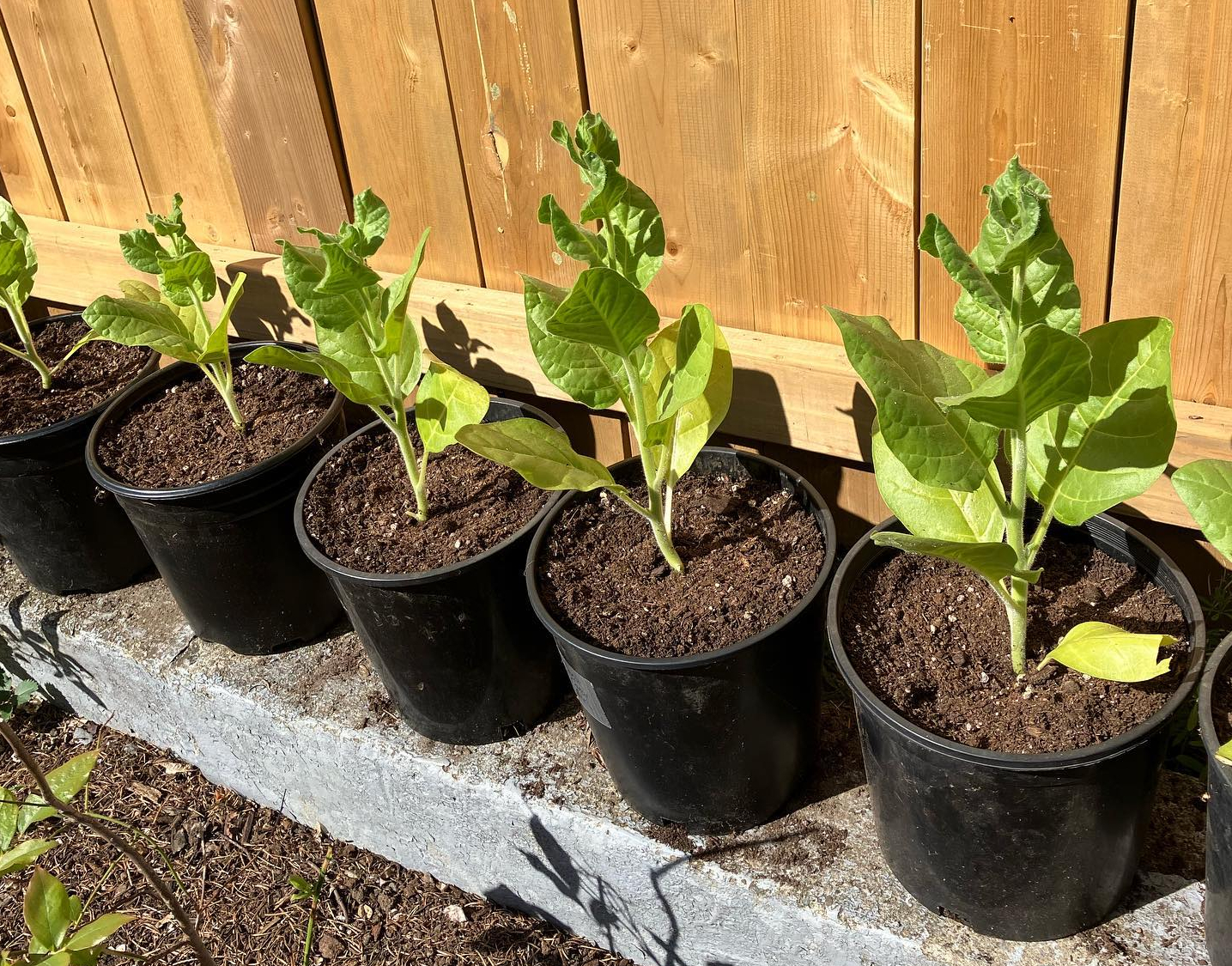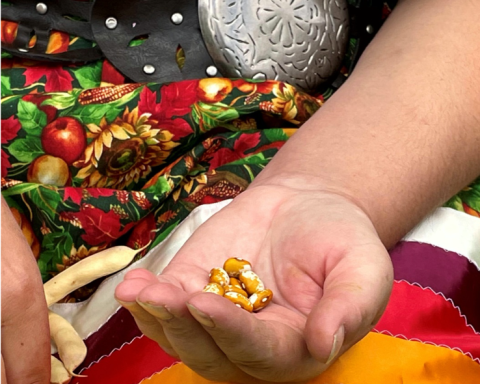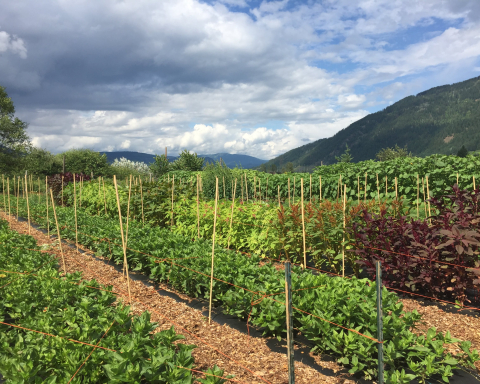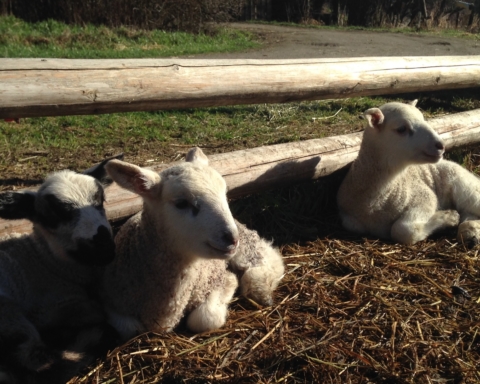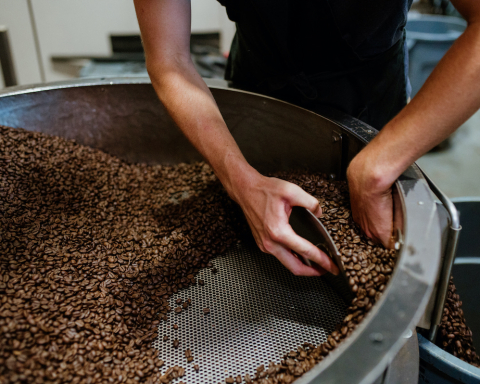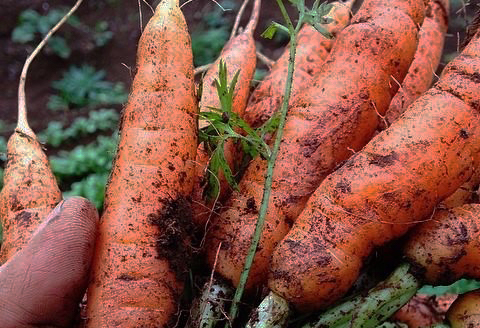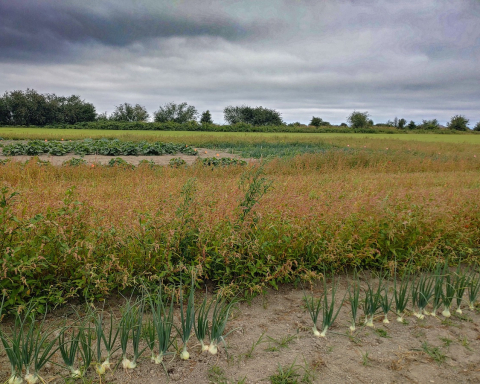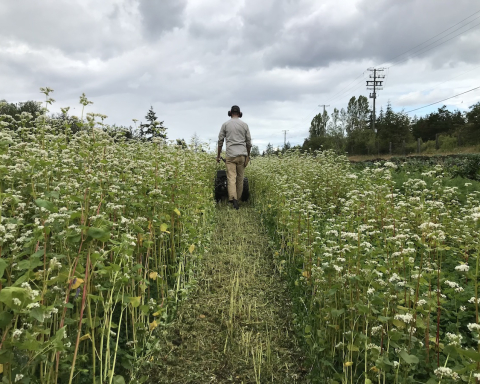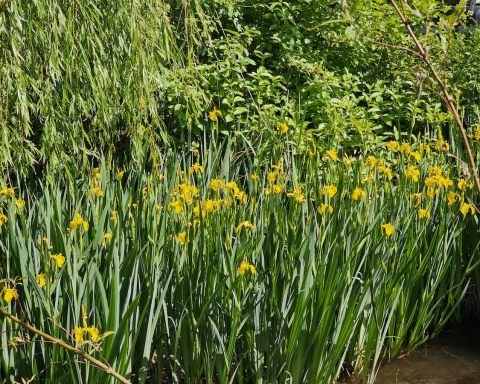By Natasha Anderson-Brass
Boozhoo/Aaniin. My name is Natasha Anderson-Brass. My traditional name is Ozaawaa Giizhigo Ikwe (Yellow Sky Woman). I am Saulteaux from the Key First Nation and Ukrainian on my father’s side, and French Canadian on my mother’s side. I am an auntie, cousin, sister, friend, food grower, and artist. I give thanks to all my ancestors, teachers, mentors, aunties, uncles, elders, and friends who have and continue to guide and support me. I am the owner/operator of Minwaadizi Farm. Minwaadizi is a small-scale certified organic market farm and community space, located on the unceded traditional territory of the K’ómoks First Nation.
I started Minwaadizi in 2022 because of my passion for growing local organic foods for my community, as well as my desire to create opportunities for other Indigenous peoples to connect with and care for the land because there is, by design, a lack of Indigenous people represented in the agricultural system. Historic government policies affected (and continue to affect) Indigenous peoples’ access to farmland, tools, and markets. For example, the Indian Act (1876) prohibited First Nations homesteading and restricted the sale of First Nations agricultural products. According to a 2016 Census, less than 3% of the agricultural population identifies as Indigenous.(1) In order to have an equitable food system for all, we need more Indigenous people stewarding land in ways that make sense culturally for them.
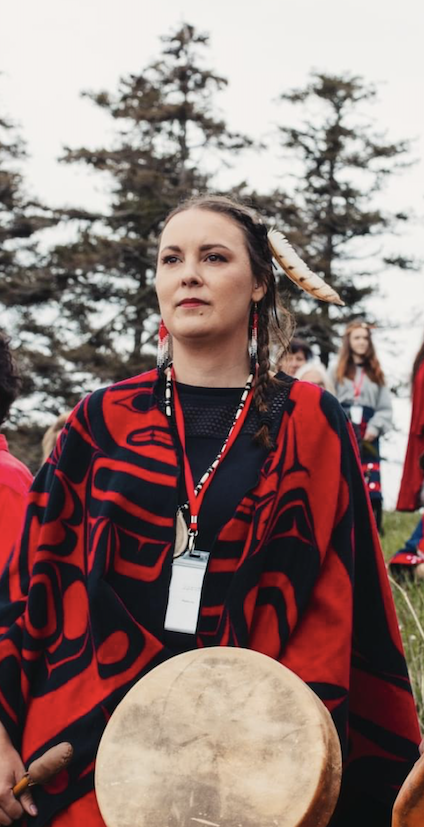
My entry into farming was not an easy one. I didn’t grow up with generational wealth. My father was taken from his birth family at three years old as part of the 60s Scoop.(2) The consequence of this being that I didn’t have a connection to my Indigenous culture or family ties until my early 30s. Like many others, I faced challenges in my life and relationships because of the traumas I have experienced and the intentional disconnect to my Indigenous ancestry because of colonization. It took me a long time to know who I am, what I want out of this life, and how I could be of service to my community. The effects of colonization still linger on in me today, and I have to work hard to overcome my own inner trickster voice of fear, shame, judgement, and doubt. At the same time as facing barriers to achieving my dreams, I was also afforded many privileges and I feel it is important to recognize those as well. Having lighter skin, being able to get a university education, being raised by both my biological parents, having the financial stability to take unpaid or low paying farm jobs to learn the skills I needed, and having a connection with my Indigenous culture, even if later in life, just to name a few.
I think Minwaadizi came into being as a result of the barriers and privileges I have faced. I want it to be easier for other Indigenous people to pursue their dream of growing food for community. I also know that community is key and that anyone who joins me at Minwaadizi will be a teacher for me as well. Indigenous people must be given the space and opportunities to realize our potential, because we have so many talents and such important knowledge that needs to be shared. I believe that caring for the land, growing nourishing foods, and practicing culture are powerful ways to heal from the effects of colonization. My hope is that Minwaadizi can grow to provide spaces for other Indigenous peoples who want to learn about growing food while practicing Indigenous ways of connection to themselves, the land, their community and the Great Mystery of life. I want Minwaadizi to be a place of reciprocal learning and sharing and a place of healing through putting energy and intention into caring for the land.
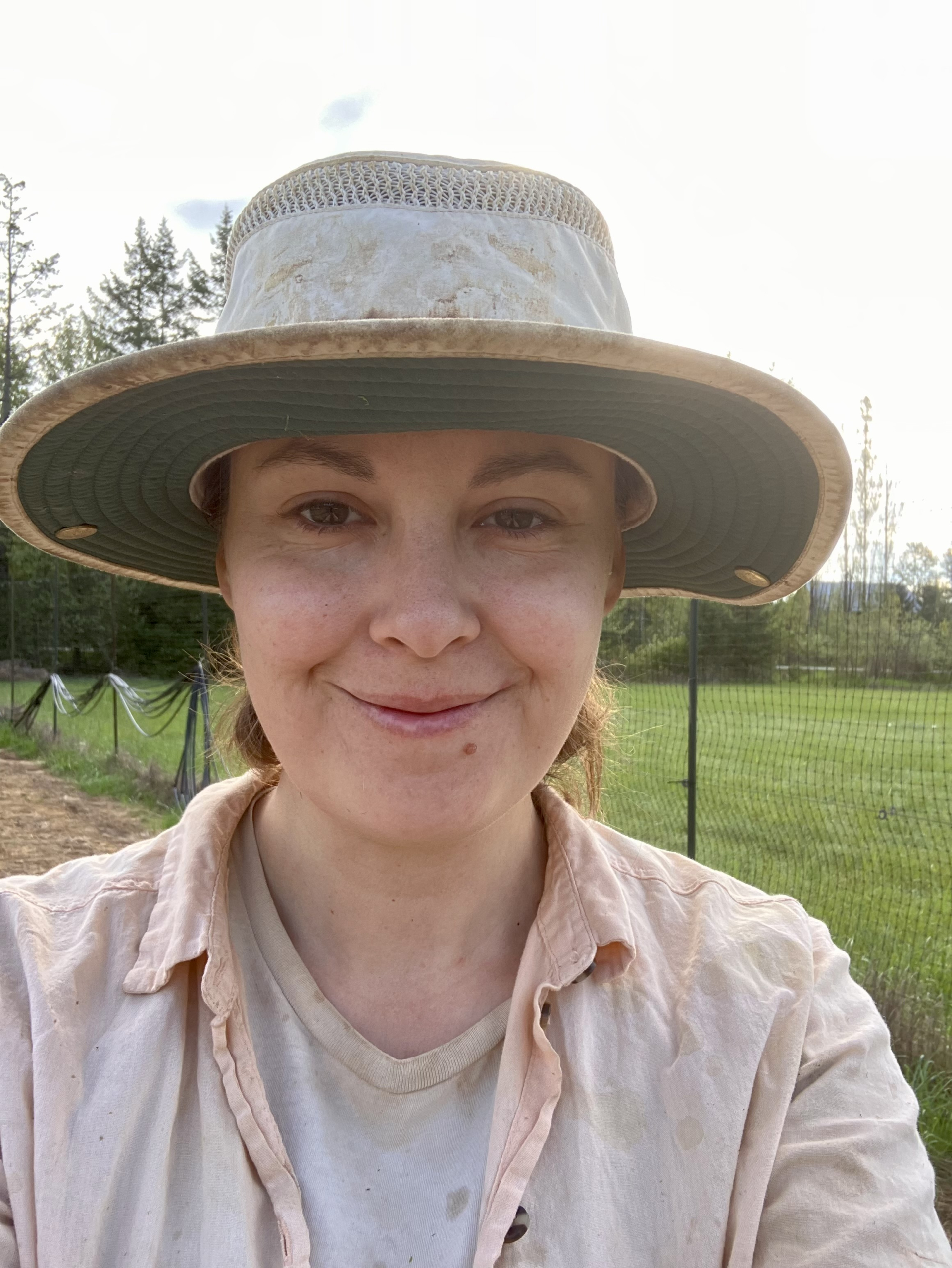
I am very grateful to be where I am today, but the biggest and perhaps not surprising challenge facing Minwaadizi is long-term sustainable access to land. For reasons I mentioned above, I do not “own” or have title to the land where I grow food. I have a one-year lease, so the future of my farm business is uncertain. In addition, the land where I farm is unceded territory, meaning Indigenous sovereignty has never been extinguished. This means I am occupying stolen land. I am constantly asking myself what I can do to be reciprocal in my relationships to the land and the people who are its original stewards? (I write “are” intentionally because Indigenous people are often referred to in the past tense, as in we once existed but now do not. We are still very much here in the present and should be referred to as such!) I am just beginning to build meaningful relationships in the community here, and hope I can continue to learn and grow in a good way.
You may be facing some of these same questions yourself, and wondering what you can do to decolonize agriculture. I think that in order to decolonize agriculture, we need to support Indigenous-led businesses and organizations who are on the ground doing the work to decolonize, and support Indigenous peoples to realize their dreams. There are so many programs and workshops to support the non-Indigenous population with “Reconciliation;” we need more endeavours by and for Indigenous people to support our own healing journey.
At the same time, we need to look inward and decolonize ourselves and our relationships with each other. I listen to my aunties and elders and do my best to follow their teachings. I have and will continue to explore my past traumas and work to heal them. I encourage you to do the same. Find out who your ancestors are and talk to them, sit with your aunties, uncles, elders, and youth, and really listen to them. Ask the hard questions and be deeply honest with yourself about your impact on the world. Get creative and explore art or whatever connects you to spirit. We (Indigenous and non-Indigenous) have all been persuaded by the illusion of disconnection that is perpetuated by colonization and our colonial mindset. Indigenous peoples continue to be targeted and harmed by ongoing colonization. We all need to step up, right now, and take responsibility for ourselves, each other, and Mother Earth if we want to create a better world. If we can connect to our inner spirit and begin to heal from within it will create a ripple effect.
To quote the remarkable Sherri Mitchell, Weh’na Ha’mu’ Kwasset (She Who Brings the Light):
“Every living being has its own vibrational tone. When these tones are combined, they form the voice of creation. If we learn to listen closely, we can begin to hear that voice and allow it to guide our steps through life.”
– From Sacred Instructions: Indigenous Wisdom for Living Spirit-Based Change by Sherri Mitchell, published by North Atlantic Books, copyright © 2018. Reprinted by permission of publisher.
You matter. The world needs your medicine.
Miigwetch for reading my words, Natasha Anderson-Brass.
Natasha Anderson-Brass farms at Minwaadizi Farm on the traditional unceded territory of the K’ómoks First Nation. Follow her journey on Instagram: @minwaadizi_farm
Featured image: Semaa (tobacco) plants growing strong at Minwaadizi Farm Credit: Minwaadizi Farm.
References
1 Statistics Canada. (2016). Census of Population. statcan.gc.ca/n1/pub/96-325-x/2019001/ article/00001-eng.htm
2 Meera Baswan and Sena Yenilmez. (2022). “The Sixties Scoop”. The Indigenous Foundation. theindigenousfoundation.org/articles/the-sixties-scoop


